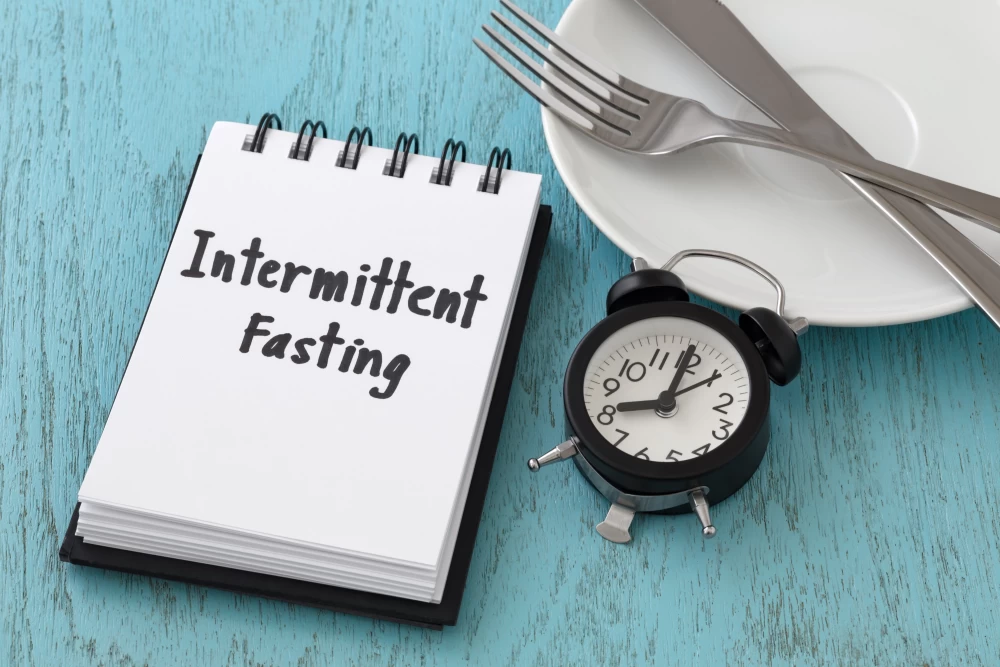
- 2nd May 2023
Table of Contents
Periods of Fasting Involved
Temporarily cutting back on food intake is the basis of the intermittent fasting diet trend. For weight loss, better control of blood sugar, and general health, many people have turned to this eating strategy. However, new research suggests that intermittent fasting can also aid those with substance use disorders and addiction. Intermittent fasting has been shown to reduce drug and alcohol cravings by altering neurotransmitter levels in the brain. Addiction-related anxiety, depression, and other symptoms may be reduced by fasting, as it causes the brain to produce its own opioids. In addition, fasting regularly improves the body's ability to process nutrients and eliminate toxins. Those struggling with addiction and substance use disorders may benefit from intermittent fasting, but this method should not be used in place of medical supervision. Addicts who are considering making major changes to their diet or way of life should first consult with their doctor. The bottom line is that people who struggle with addiction-related cravings may benefit from incorporating intermittent fasting into an otherwise healthy lifestyle.
How Does Intermittent Fasting Affect Cravings?
As more people discover the weight loss and health advantages of intermittent fasting (IF), the diet plan's popularity has skyrocketed. Recent research, however, suggests it may also have applications in the treatment of substance abuse disorders. The neurobiological reward system is commonly disrupted in addicts, and studies show that IF can have an effect on this system. Dopamine levels in the brain are one mechanism by which IF influences cravings. Dopamine is a neurotransmitter that plays a significant role in addiction because of its association with pleasure and reward. Fasting has been shown to increase dopamine production, which may lessen the desire to use addictive substances. Additionally, IF can aid in blood sugar regulation and improve insulin sensitivity, both of which are commonly altered in those with substance use disorders. Sugar cravings are common among those battling substance abuse, but this stabilisation of blood sugar levels may help. Although more studies are needed to draw firm conclusions about the link between IF and addiction management, preliminary data show that this dietary approach may have some promising implications for lowering cravings associated with substance use disorders.

Disorders of Substance Abuse and the Role of IF
Recent research suggests that there may be additional benefits to intermittent fasting (IF) beyond weight management, which may explain its rising popularity. In particular, IF has been shown to improve brain function and decrease cravings, which may be helpful for people with substance use disorders. IF has been shown in studies to activate genes involved in mood and behaviour regulation in the brain and body. Increased levels of neurotrophic factors like brain-derived neurotrophic factor (BDNF) have also been observed as a result of its use. Substance abusers may benefit from decreased cravings and enhanced cognitive performance as a result of these effects. Incorporating fasting into a comprehensive treatment plan may be helpful for those struggling with substance use disorders, but more research is needed to fully understand the relationship between IF and addiction. Fasting can be an effective treatment for addiction, but it should only be attempted under medical supervision and in conjunction with other tried-and-true methods.
Addiction and Mental Illness: Ties to the IF
In the context of intermittent fasting, studies have found a possible connection between mental illness and addiction (IF). Addiction has been linked to a number of mental health disorders, including depression and anxiety, according to some research. Substance addicts are at increased risk for experiencing deterioration in mental health symptoms. Some health professionals have speculated that adhering to an IF diet could help people with addictions control their cravings. This is due to the fact that IF has been shown to improve cognitive performance and mood stability. The connection between IF and addiction is complex, but more study is needed. In general, those dealing with both mental illness and addiction should consult with medical experts for assistance. They can aid in the management of these complicated conditions and increase general health and happiness.
Intermittent fasting's positive effects on mental health

Addiction and substance use disorders may benefit from intermittent fasting, according to research. Intermittent fasting has been shown to reduce the intensity of cravings for addictive substances like drugs and alcohol by reducing the amount of dopamine released in the brain during the fasting period. This is because eating triggers the release of dopamine, which makes us feel good afterward. However, when a person engages in intermittent fasting, dopamine levels stabilise. Intermittent fasting also has psychological advantages because it encourages reflection and self-awareness in relation to eating. Intermittent fasting helps people understand their relationship with food and the underlying causes of their food cravings and excessive eating. Individuals with this level of insight are more likely to make dietary decisions that benefit their health. Mood and cognition have been shown to benefit from intermittent fasting. Autophagy, the process by which the body breaks down and recycles damaged or obsolete cells, is triggered by fasting. This procedure has been shown to have beneficial effects on mental health by enhancing cognitive performance and decreasing inflammation in the brain.
Intermittent fasting's potential drawbacks
The practise of intermittent fasting has gained popularity as a means to better health and weight loss. Recent research, however, has shown that it can have unintended consequences for people who struggle with addiction. The increased cravings for drugs or alcohol that can result from the restricted eating pattern can make it difficult for those in recovery to stay clean. Addiction symptoms, such as sleeplessness and anxiety, can be made worse by the circadian rhythm disruption that occurs during intermittent fasting. The inability to get enough sleep can have negative effects on mood and appetite regulation, potentially leading to binge eating episodes that set recovery back even further. Individuals with substance use disorders should talk to their doctor before making any dietary changes, despite the fact that intermittent fasting has benefits for many people when practised safely and appropriately. For their own well-being and safety, they may require special accommodations during this time.














